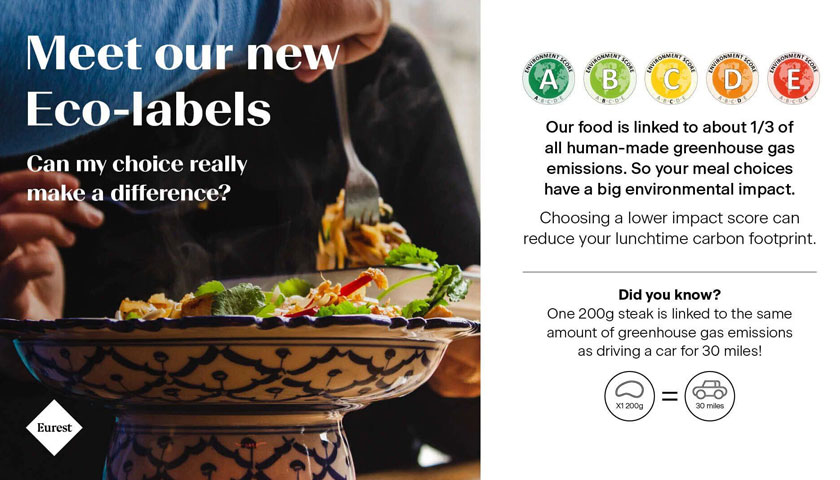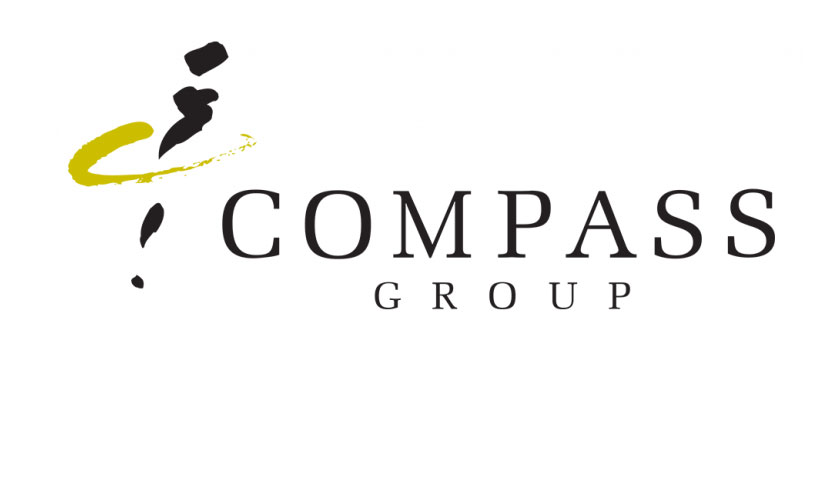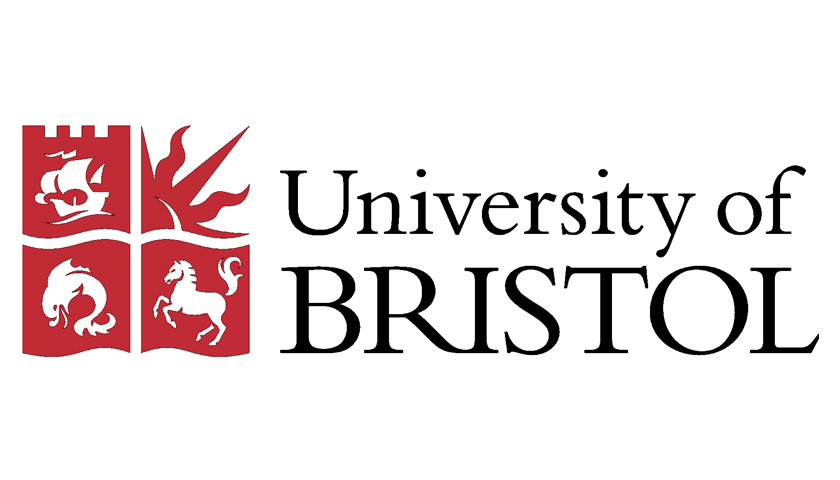Following completion of an “ecolabelling” pilot project with researchers in the Livestock, Environment and People labelling (LEAP) group at the University of Oxford, Compass Group UK & Ireland’s Business and Industry sector is rolling out the trial across its workplace catering sites.
The eco-labelling initiative sees dishes labelled A-E, to highlight which meals have a higher (E) or lower (A) environmental impact. The data is shared with the LEAP researchers who are monitoring whether eco-labels nudge consumers to make more sustainable and planet-friendly meal choices. Scoring is based on greenhouse gas emissions, water scarcity, water pollution and biodiversity loss, with the eco-label values for each product created using environmental impact data from the Poore & Nemecek dataset and menu item ingredient information.
Initially trialled by the B&I arm of Compass, Eurest, at 15 industry client sites that remained operational throughout the pandemic, the business has seen positive results in relation to consumer behaviour. Following the company’s recent announcement to achieve climate Net Zero emissions by 2030, the company has been looking at a number of different ways to create a sustainable food offer. This has included increasing the number of plant-based dishes on their menus.
LEAP aims to understand the health, environmental, social and economic effects of meat and dairy production and consumption, in order to provide evidence and tools for promoting healthy and sustainable diets. Other areas of focus include availability of plant-based options on menus, placement of products and creative naming trials.
The business has already seen a difference in what consumers are choosing following the introduction of a greater range of plant based dishes and changing the “placement” of dishes to make plant-based more prominent.
Placement of plant-forward dishes on the counters, in front of the meat-based dishes, encourages people to try new things, as customers view the dishes of equal relevance to traditional meat-based dishes. Often vegetarian meals are seen just for vegetarians, and previously would have been at the end of the counter in a separate area. With millions of people now identifying as flexitarians, the opportunity to celebrate and feature plant-forward meals is enormous.
Working with LEAP, dishes descriptions were also reviewed and renamed – providing more detail and description of what was within each dish. For example – Big Veggie Bowl has become a Hearty roasted squash & broccoli bowl with maple glazed lentils and Warm Satay Noodle Salad and Satay noodles with rainbow veggie ribbons, sesame, lime & coriander. This enables the consumer to better picture what they are eating.
Additionally, the B&I culinary team has been introducing more plant-based ingredients to their meat dishes, so where customers still want their traditional dishes, the vegetable and meat content has been changed at no expense of taste.
Commenting on the LEAP partnership Liz Forte, Health and Wellbeing Director, Business and Industry, Compass Group UK & Ireland said: “We have learnt so much through this partnership with the LEAP project at Oxford University. It’s been so exciting to be part of something that not only is driving healthier eating habits, but also has great sustainability benefits too. We know our customers want choice and great tasting meals.
“At traditional manufacturing sites, meat and two veg dishes have been a staple of consumers’ diets for some time, yet following the introduction of these subtle changes, we are seeing an increase in customers choosing plant-forward dishes. Our pilot seems to suggest that people are willing to try new things, but when it comes to plant-based need a nudge of encouragement. We have seen an increase in our plant-forward sales and the feedback from customers has been fantastic. I am really looking forward to introducing these measures across our B&I client base. The trial will also inform future eco-labelling initiatives for the wider Compass business.”
Professor Susan Jebb, Oxford University said: “When we began the LEAP project, we were keen to get outside the lab and work in real world settings. It’s been fantastic for us to be able to work in partnership with Compass. We’ve learnt from their chefs about what they think will work and we’ve experienced at first-hand the challenges to implementing some of the interventions – especially the eco-labelling.
“It’s given us a great opportunity to learn more about the feasibility of changing eating habits in the workplace, and to gather evidence on a range of interventions in real world settings. Though we have yet to analyse all the data, the insights from Compass and the response of their customers looks promising. We look forward to seeing the final results of the trials from sites around the country over the coming months.”


